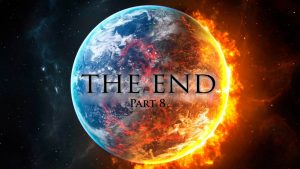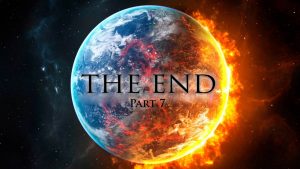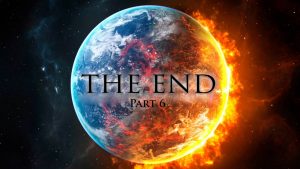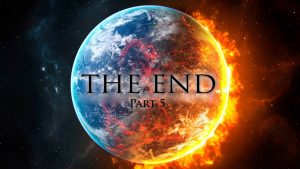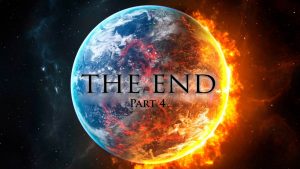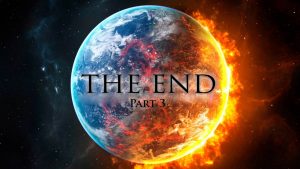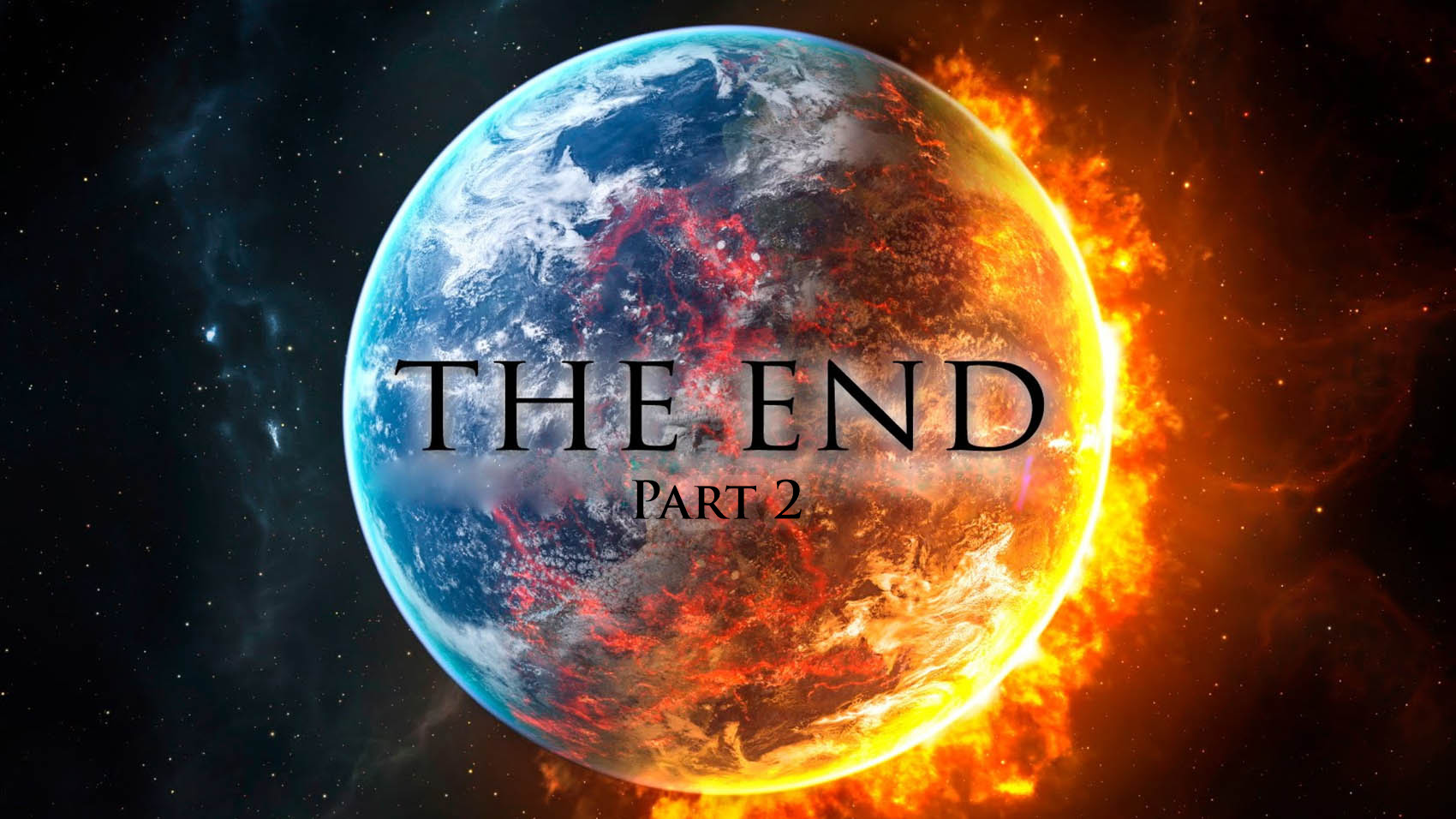
Admit it. Whenever you hear the phrase “prophecy”, “end times”, or “rapture”, the first thing on your mind is probably not “how am I living?” or “am I really excited for Christ’s return?” If you are like most Americans…most Christians actually, your first thoughts are probably on ten-headed beasts, dragons, the antichrist, horsemen, the mark of the beast, and other fantastic images or events.
Why are we so quick to equate “end times” with the imagery and symbols contained in the book of Revelation? It is true that the book of Revelation is an important book in the study of biblical prophecy. In fact, it opens with this address:
Revelation 1:1–2 (1) The revelation of Jesus Christ, which God gave him to show to his servants the things that must soon take place. He made it known by sending his angel to his servant John, (2) who bore witness to the word of God and to the testimony of Jesus Christ, even to all that he saw. (ESV)
Perhaps one reason is that Revelation is a book whose purpose is to “show His servants the things that must soon take place.” If we combine our desire to understand what God has told us, our “need” to figure it all out, and the exciting story and imagery, mystery, and debate, we can easily see why many are drawn to this particular book above others.
Another thing to consider is the popularity of modern “prophecy research” and books like “Left Behind” which are almost totally centered on Revelation (and given the theological bent to them, a framework hinted at in Daniel.) There is certainly much to be learned about the end times in Revelation, but why do we seem so single-focused on that book in our study of the end? We ought to be asking ourselves “What does the whole Bible say about the end times?” In our quest to understand the mystery, we have lost the forest for the trees.
Another reason I have seen all too often is that people aren’t seeking understanding, rather, they are seeking to satiate pride. There is something about us that craves knowledge that others do not have. There are some who approach the study of the end times with that mindset – there is plenty of room for interpretation, and some take advantage of this claiming some sort of hidden or insanely overcomplicated knowledge, sometimes even claiming special revelation form God Himself!
Hidden knowledge is attractive after all – a whole heretical sect, the Gnostics, based its existence on the search for secret knowledge, and their ideas are found all over even today.
In a discussion of the end times, we will necessarily discuss the book of Revelation, but in this series, we will not focus on it. As we know, prophecy, even about the end times, is not unique to Revelation, or the New Testament for that matter. At its core, the entire Bible is a book of prophecy – there are many messages from prophets that speak of coming judgment or blessing, events, signs, etc. In fact, the opening chapters of the Bible frame the entire prophetic message:
Genesis 3:11–15 (11) He said, “Who told you that you were naked? Have you eaten of the tree of which I commanded you not to eat?” (12) The man said, “The woman whom you gave to be with me, she gave me fruit of the tree, and I ate.” (13) Then the Lord God said to the woman, “What is this that you have done?” The woman said, “The serpent deceived me, and I ate.” (14) The Lord God said to the serpent, “Because you have done this, cursed are you above all livestock and above all beasts of the field; on your belly you shall go, and dust you shall eat all the days of your life. (15) I will put enmity between you and the woman, and between your offspring and her offspring; he shall bruise your head, and you shall bruise his heel.” (ESV)
This “first prophecy” is not about the end of the world, it is about the victory of Christ over the devil. In fact, what we will see in this discussion of the end times is that it too is about the victory of Christ over the devil.
If we do not frame the end times discussion with this truth, that the victory of Christ over Satan is central, we can easily start taking rabbit trails too far and begin to see end times activity everywhere. Just Google™ “end times” to see some of the rabbit trails you can take if you have the time.
Terminology and concepts
There are many terms that are used when discussing the end times. It is easy to get confused with all of the “-isms”, “-ologies”, big words, and complex beliefs.[1]
First, we must define some terms
- Eschatology (from the Greek ἔσχατος (eschatos) meaning “end” and “logy” meaning “study of”) – The study of the teachings in the Bible concerning the end times, or of the period of time dealing with the return of Christ and the events that follow.
- Tribulation – A time of great distress, war, famine, persecution, and seemingly unrestrained evil. Depending on your view of the end times, this tribulation takes many different forms.
- Rapture – From 1 Thessalonians 4:17, this is the event where Jesus comes back for His church and “catches up” the saints to meet Him in the air. Again, depending on your view of the end, there are many ways to see this event.
- Millennium – Literally, this word means 1000 years. In the study of the end of time (eschatology), the millennium is the period of time of Christ’s rulership. The debate has been over when the millennium will occur and what form it will take.
- Parousia – From 2 Thessalonians 2:1, this is a Greek term meaning arrival or coming. In the context of end-times studies, it refers to the second coming of Christ.
- Armageddon – The word “armageddon” only occurs in Revelation 16:16 and refers to the location of the final great battle between good and evil called the Great Day of God Almighty.
- Apocalypse – From the Greek word for “revelation,” or “unveiling.” It is synonymous with Armageddon and refers to those future things dealing with the return of Christ and the great battle of Armageddon.
- Antichrist – A figure who opposes God. The word is used to describe a spirit of rebellion against God, “…the spirit of the Antichrist…” (1 John 4:3) and of a specific future person identified as the man of lawlessness (2 Thessalonians 2:3). He actively opposes Christ (2 Thess. 2:4) and when he arrives, he will be able to perform miracles (2 Thessalonians 2:9). Some believe he will be an incarnation of Satan and as such will be able to deceive many. His number is 666 (Revelation 13:18). A further possible description of him might be found in Zechariah 11:15-17). The bible talks about “the antichrist” and “many antichrists” who represent anyone who opposes the purpose and mission of Jesus.
No discussion of the end times would be complete without a discussion of the different end times beliefs throughout history. These beliefs will be detailed more in the next few posts, but they are arrived at because of five main schools of thought through which we read scripture:
- Futurist – end-time prophecies will be literally fulfilled in the future
- Historist – end time prophecies are literally fulfilled throughout the history of the church age
- Idealist – end-time prophecies will not be literally fulfilled as they are symbolic or allegorical
- Preterist – end-time prophecies have already been fulfilled
- Eclectic – a harmonization of the other schools that takes advantage of their strengths and minimizes their weaknesses
Each school of thought defines a outlines a method of interpretation (hermeneutic) for the various biblical texts, and the hermeneutic that is used will result in one of four main views (and some subviews) which will be discussed in more depth in the next two lessons.
- Postmillennialism (futurist) – The belief that the millennium is an era (not necessarily a literal thousand years) during which Christ will reign over the earth, not from a literal and earthly throne, but through the gradual increase of the gospel and its power to change lives. After this gradual Christianization of the world, Christ will return and immediately usher the church into their eternal state after judging the wicked. This is called postmillennialism because, by its view, Christ will return after the millennium.[2]
- Preterism (preterist) – a view in Christian eschatology which holds that some (or all) of the biblical prophecies concerning the last days refer to events that took place in the first century after Christ’s birth, especially associated with the destruction of Jerusalem in 70 AD. The term preterism comes from the Latin praeter, meaning past, since this view deems certain biblical prophecies as past, or already fulfilled.[3]
- Partial – the older of the two views, holds that prophecies such as the destruction of Jerusalem, the Antichrist, the Great Tribulation, and the advent of the Day of the Lord as a “judgment-coming” of Christ were fulfilled around 70 AD when the Roman general (and future Emperor) Titus sacked Jerusalem and destroyed the Jewish Temple, putting a permanent stop to the daily animal sacrifices. It identifies “Babylon the Great” (Revelation 17-18) with the ancient pagan cities of either Rome or Jerusalem.
- Full – sees all prophecy fulfilled with the destruction of Jerusalem, including the resurrection of the dead and Jesus’ second coming (parousia). Full preterism is also known by other names, such as consistent preterism or hyper-preterism (a somewhat derogatory term).
- Premillennialism (historist/futurist)– a view that the second coming will occur before a literal thousand-year reign of Christ from Jerusalem upon the earth. Premillennialism was the most widely held view of the earliest centuries of the church. Starting in the British Isles and spreading to America, premillennialism (in its dispensational form) has become prominent in the Evangelical faith.[4]
- Historic – the classic form which may be found in writings of some of the early church fathers (mentioned above), although in an undeveloped form. This belief is almost always coupled with a belief that Christians will suffer through the great tribulation.
- Dispensational (classic) – pre-tribulationists who believe that the second coming will be in two stages separated by a 7-year period of tribulation. At the first, he will return in the air to rescue those who are Christians at that time (the rapture). Then follows a seven-year period of suffering in which the Antichrist will conquer the world and kill those who refuse to worship him. At the end of the seven years, the final witness will go out before men and angels and Christ will return to the earth. He will defeat the Antichrist, and rescue the Jews and those who have converted to Christianity during the tribulation period. Dispensational premillennialism was introduced in the 1800s and popularized by John Nelson Darby.
- Amillennialism (idealist/eclectic)- The teaching that maintains that the millennial kingdom referred to in Revelation 20:1-6 is not a literal 1,000 year reign of Christ on earth. Hence the name a-millennial, with a- functioning as the negative prefix. However, rather than believing in no millennial age, amillennialism contends that the period described in Revelation 20 was inaugurated (started) at Christ’s resurrection and will continue until his Second Coming. For this reason, amillennial believers sometimes argue that an alternative name like realized millennialists would be more accurate.[5]
So, with that, here are a few questions for reflection.
- Do you immediately associate “end times” with Revelation? If so, why? If not, have you included the book of Revelation in your studies?
- A tongue-in-cheek view of the end times is jokingly called “pan-millennial” – the belief that it will all pan out in the end. Though there is much truth to be found in that statement (for a Christian it all will pan out in the end), how could such a view become flippant or even dangerous?
- Why is it important to study the end times? Why is it important to be familiar with the various views?
- Why is it important to see a study of the end times centered on the victory of Christ over the devil?
[1] There are many great resources on the internet to find definitions for biblical terms. One place is http://www.carm.org/christianity/dictionary-theology from which the majority of the definitions here were obtained. Another is http://www.theopedia.com.
[2] http://www.theopedia.com/Postmillennialism
[3] http://www.theopedia.com/Preterism
